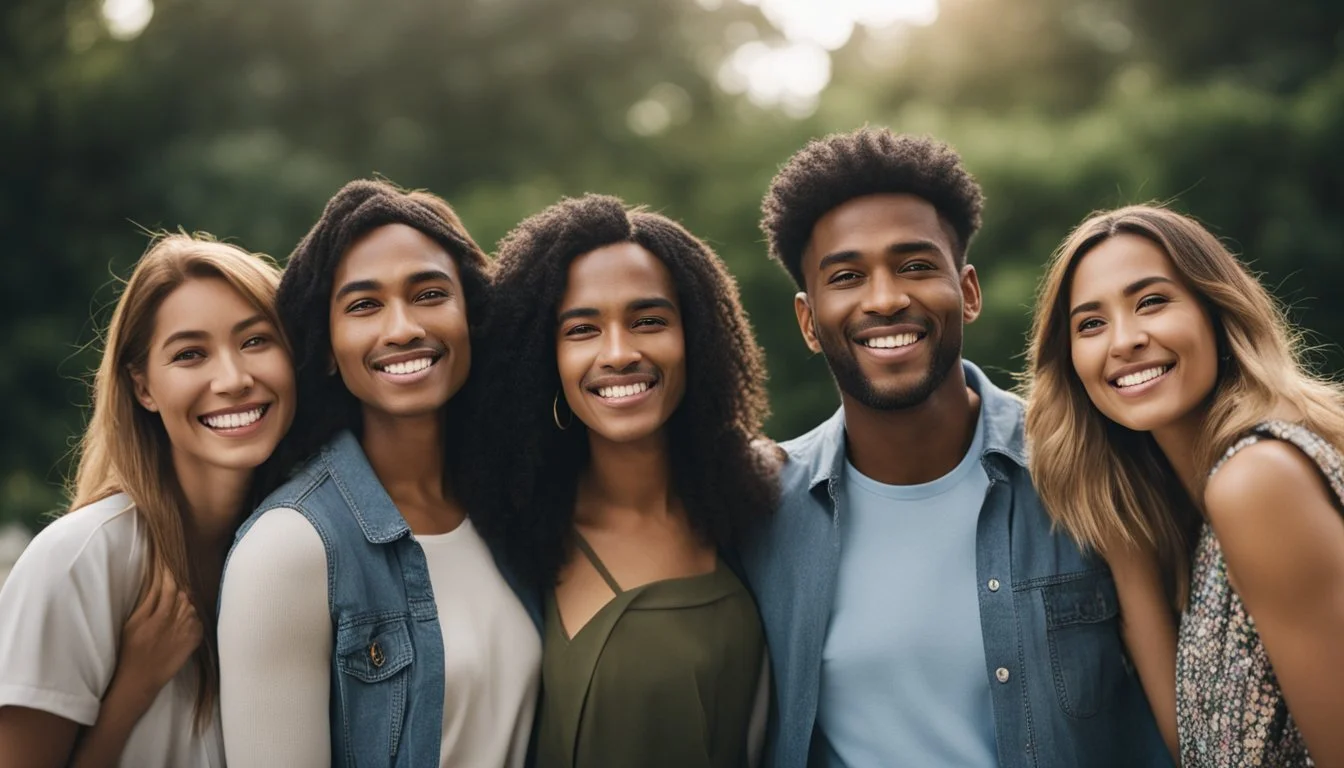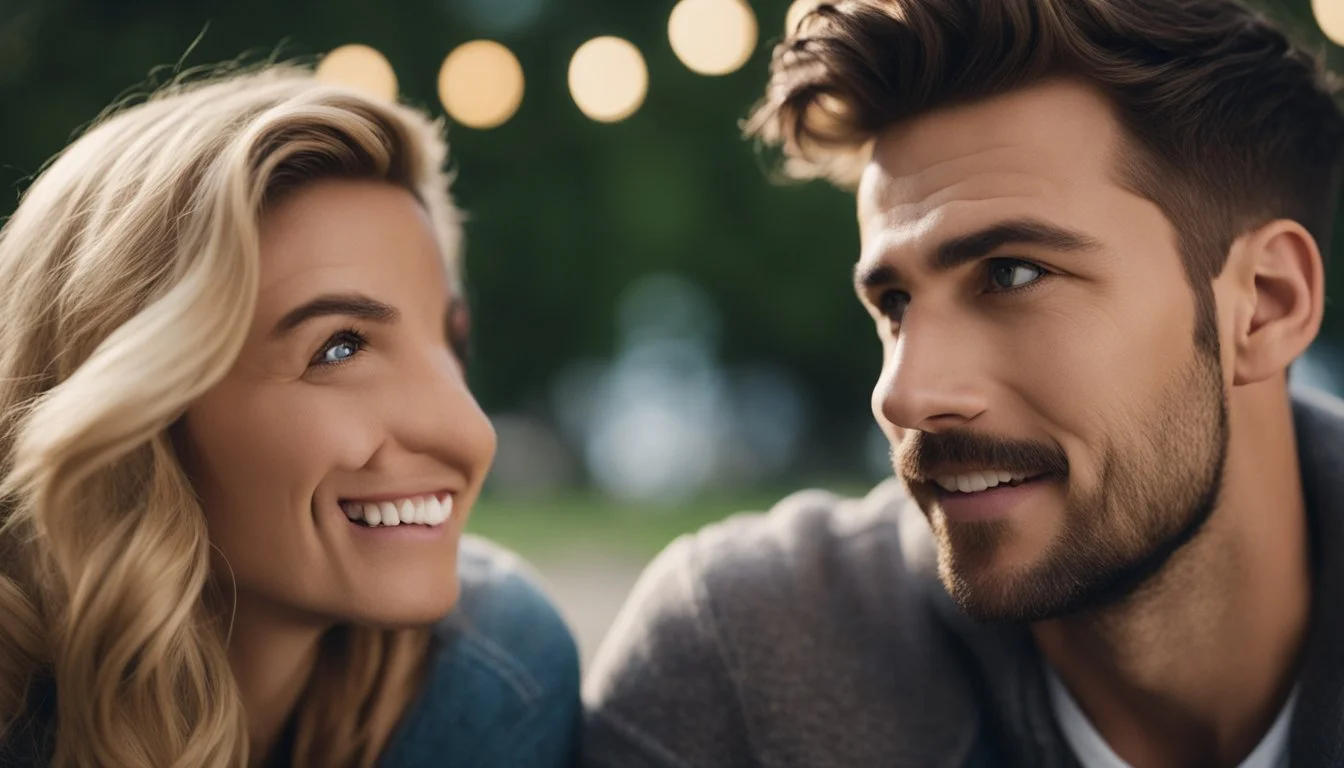4 Documentaries That Challenge Stereotypes About Love and Relationships
Redefining Modern Romance
Documentaries have the power to challenge our preconceptions and offer fresh perspectives on love and relationships. By exploring unconventional stories and real-life experiences, these films can broaden our understanding of human connections.
Viewers who watch documentaries about love and relationships often gain insights that challenge societal norms and stereotypes. These films can showcase diverse forms of love, highlight unexpected relationship dynamics, and reveal the complexities of human emotions. By presenting authentic stories, documentaries encourage audiences to reconsider their assumptions about what constitutes a meaningful partnership or romantic bond.
1) Lovesick (2014)
Lovesick challenges common notions about romance and mental health. The documentary follows three individuals diagnosed with hypersexual disorder as they navigate relationships and treatment.
Through intimate interviews and candid footage, the film explores how this condition impacts daily life and intimate connections. It sheds light on a misunderstood disorder often sensationalized in media.
The subjects' stories reveal the complexities of managing intense sexual urges while seeking meaningful partnerships. Their experiences highlight the stigma surrounding sex addiction and mental health issues.
Lovesick offers a compassionate look at a taboo topic, encouraging viewers to reconsider assumptions about love, sexuality, and psychological wellness. The film presents a nuanced portrayal of people striving for stability and connection despite significant obstacles.
2) The Mask You Live In (2015)
"The Mask You Live In" explores the concept of masculinity in American culture. Directed by Jennifer Siebel Newsom, this documentary examines the pressures boys and young men face to conform to narrow definitions of manhood.
The film features interviews with experts in psychology, neurology, and sociology. It also includes personal stories from boys and men of various ages and backgrounds. These narratives shed light on the challenges of expressing emotions and maintaining authentic relationships.
"The Mask You Live In" critiques societal messages that encourage boys to disconnect from their feelings. It discusses how media, peer groups, and even adults often reinforce harmful stereotypes about masculinity.
The documentary aims to spark conversations about redefining masculinity in healthier ways. It suggests that allowing boys to embrace their full range of emotions can lead to more fulfilling lives and relationships.
More information on The Mask You Live In
3) Monogamish (2017)
"Monogamish" explores alternative approaches to love and relationships. Directed by Tao Ruspoli, this documentary challenges traditional notions of monogamy and marriage.
The film features interviews with a diverse range of experts and individuals. Sex therapists, anthropologists, and philosophers offer insights into human sexuality and partnerships.
Ruspoli's personal journey following his divorce serves as a narrative thread. He travels and speaks with various people about their experiences with non-traditional relationships.
"Monogamish" examines topics like open marriages, polyamory, and the history of monogamy. It presents different perspectives on love and commitment without passing judgment.
The documentary encourages viewers to question societal norms surrounding relationships. It suggests that there may be multiple valid approaches to romantic partnerships.
Through its interviews and explorations, "Monogamish" offers a thought-provoking look at modern love. It invites audiences to consider alternatives to conventional monogamy.
More information on "Monogamish"
4) Unrest
"Unrest" (2017) offers a raw and intimate look at chronic fatigue syndrome through the eyes of filmmaker Jennifer Brea. As she documents her own struggle with the condition, Brea challenges preconceptions about invisible illnesses and their impact on relationships.
The documentary explores how Brea's marriage to Omar Wasow is tested and ultimately strengthened by her diagnosis. It reveals the complexities of caregiving and the strain it can put on romantic partnerships.
"Unrest" also highlights the global community of people living with chronic fatigue syndrome. It showcases how technology enables connection and support among those who are often isolated by their condition.
Through personal stories and expert interviews, the film confronts societal stigma surrounding chronic illness. It questions traditional notions of what constitutes a "normal" relationship in the face of long-term health challenges.
By sharing her vulnerable journey, Brea invites viewers to reconsider their assumptions about love, commitment, and resilience in the context of chronic illness.
Learn more about "Unrest" on IMDb
The Impact of Documentaries on Perception
Documentaries have become powerful tools for reshaping public opinion on love and relationships. They present real-life stories and expert insights that challenge long-held stereotypes and beliefs.
Changing Traditional Views
Documentaries can significantly alter how people perceive relationships and romantic love. By showcasing diverse experiences, these films help viewers question societal norms. For example, documentaries exploring non-traditional partnerships or long-distance relationships often lead audiences to reconsider their preconceptions.
Many viewers report shifts in their attitudes after watching such films. These changes can range from greater acceptance of different relationship models to a deeper understanding of the complexities of love.
Documentaries also play a crucial role in debunking myths about romance. They often present scientific research and expert opinions that contradict popular misconceptions about love and attraction.
Influence on Younger Generations
Young people are particularly receptive to the messages conveyed in documentaries about love and relationships. These films often resonate with their experiences and questions about navigating romantic life.
Documentaries can serve as educational tools, providing information that may be missing from traditional sex education or family discussions. They offer insights into healthy relationship dynamics, communication skills, and emotional intelligence.
Many schools and universities now incorporate relationship-focused documentaries into their curricula. This integration helps foster open discussions about topics that were once considered taboo or too personal for classroom settings.
Social media platforms have amplified the reach of these documentaries, allowing young viewers to share and discuss the content with peers. This online engagement further extends the impact of the films beyond their initial viewing.
How Storytelling Shapes Emotional Understanding
Storytelling in documentaries helps viewers connect with complex emotions and experiences. It illuminates the nuances of human relationships and challenges preconceived notions about love.
Emphasizing Emotional Complexity
Documentaries use various techniques to convey emotional depth. They often feature intimate interviews, allowing subjects to share raw feelings and personal anecdotes. This approach helps viewers relate to unfamiliar experiences.
Filmmakers carefully select and edit footage to highlight emotional turning points. Close-up shots capture subtle facial expressions, revealing unspoken feelings. Background music and sound design enhance the emotional impact of key scenes.
Some documentaries incorporate reenactments or artistic visuals to represent abstract emotions. These creative elements can make intangible feelings more concrete and relatable for the audience.
By presenting diverse perspectives, documentaries encourage viewers to consider multiple emotional viewpoints. This approach fosters empathy and challenges simplistic ideas about love and relationships.
Behind the Scenes: The Making of Impactful Documentaries
Creating documentaries that challenge stereotypes about love and relationships requires careful planning, ethical considerations, and thoughtful directorial choices. Filmmakers must navigate complex interpersonal dynamics while crafting compelling narratives that resonate with audiences.
Directorial Choices and Ethics
Documentary directors face unique challenges when exploring intimate relationships on screen. They must build trust with their subjects while maintaining objectivity. Many employ observational filming techniques, allowing events to unfold naturally without interference.
Ethical concerns are paramount. Directors must obtain informed consent and protect participants' privacy. Some choose to blur faces or use pseudonyms when dealing with sensitive topics.
Editing plays a crucial role in shaping the narrative. Directors carefully select which moments to include, aiming for authenticity while crafting a cohesive story. They may use techniques like juxtaposition to highlight contrasts or challenge assumptions.
Sound design and music choices help set the emotional tone. Some directors opt for a minimalist approach, letting subjects' words and actions speak for themselves. Others use evocative scores to enhance key moments.






